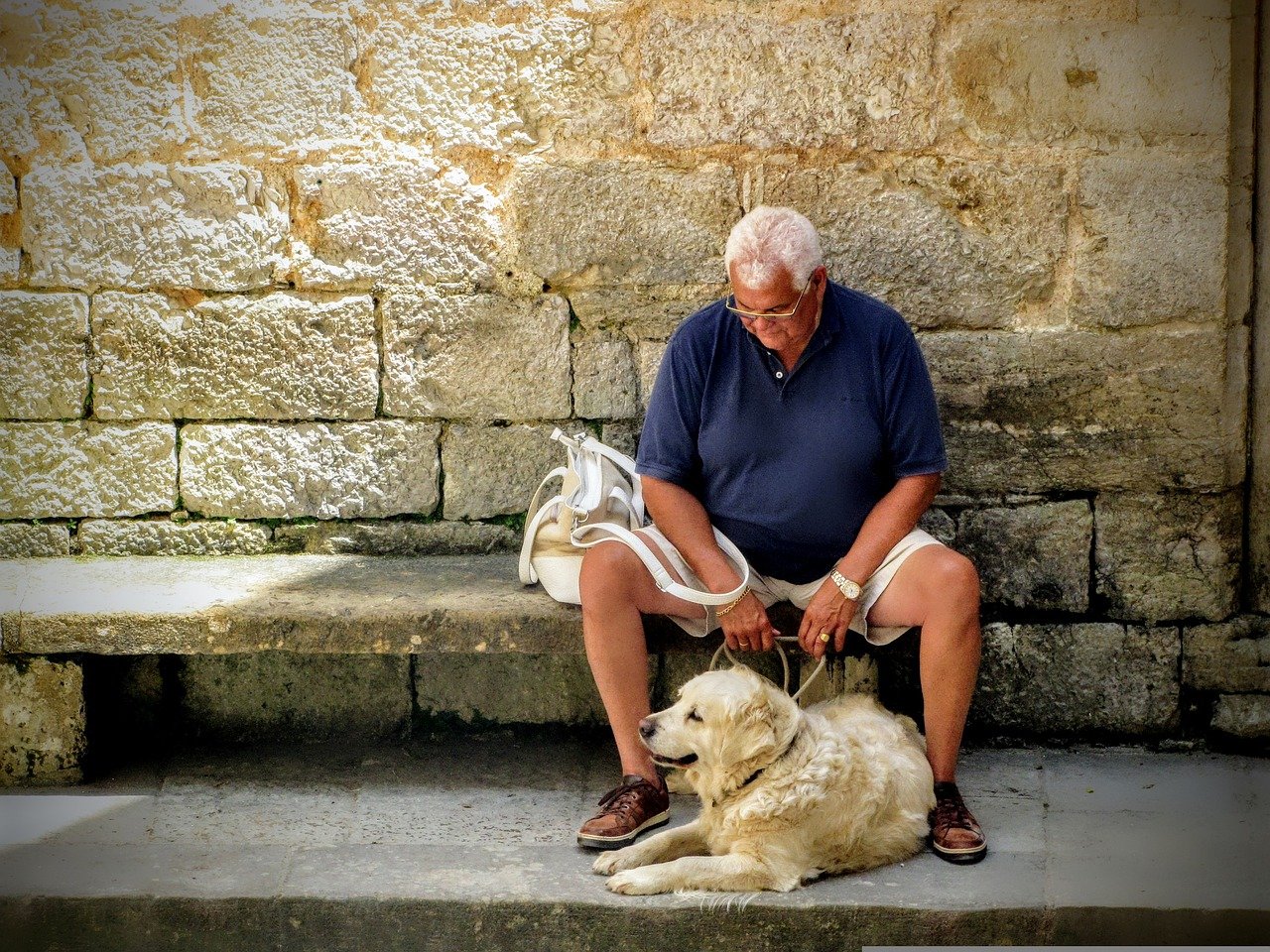
It’s important to remember that even our dogs are not immune to the effects of cancer. In fact, every year, cancer kills more dogs and cats than any other single illness. Pet cancer signs aren’t always easy to see, but you know your pet better than you think. Early detection is key, just as it is for humans. The following are some of the more subtle signs of cancer that should not be ignored.
Gums that are not as pink as the rest of your pet’s body are a red flag that something is wrong. Gums that suddenly appear pale may be a sign of severe blood loss. Tumor rupture, along with other conditions, may cause abrupt blood loss in senior dogs. Keep an eye on your hale and hearty pet to establish a visual reference point for color.
Distended abdomen: Aging dogs often acquire weight gradually, but you shouldn’t suddenly see your dog has a potbelly. Abdominal enlargement in a pet may be the result of a ruptured or developing tumor.
Although many dogs and cats slow down with age, drastic changes within a week’s time should not occur. The adverse effects of tumors, especially when they spread, may quickly cause a pet to become very lethargic. Take your pet in for an examination if you detect any of these symptoms.
Only injuries, such as wounds or trauma, should cause bleeding. Bleeding from the nose or genital region is a medical emergency that may indicate a bleeding tumor or abnormal clotting in your pet.
New lumps or bumps should be checked to see whether they are malignant. The lymph nodes should be monitored closely since their size might increase due to lymphoma or infection. Any lymph nodes larger than a pea need to be checked out by a vet very away; you can’t just wait it out at home.
Rapid collapse is a life-threatening situation. Collapse often results from medical emergencies such as ruptured tumors or heart illness.
Bad breath is normal for pets, particularly as they become older, but the bad breath that causes bleeding from the mouth is not. Tumors developing in the mouth may trap food and germs and may be linked to secondary infections, both of which can lead to a foul odor coming from the breath, even in the absence of a history of poor dental hygiene. Bleeding after eating, drinking, or chewing on toys may be a symptom of oral tumors, as can difficulty chewing (prolonged chewing, refusal to chew, or food spilling from the mouth).
The inability to pee manifests itself in atypical urination postures that do not result in a sufficient or healthy flow of urine. Bladder tumors or stones may impede urination, whereas mild urinary tract infections might increase the frequency or urgency of urinating. Problems with urination need immediate attention. Don’t wait to see the vet.
We may all be fussy eaters, but when our cats and dogs suddenly stop eating, it’s typically because of an underlying health issue known as anorexia. Cancer is one of the numerous causes of loss of appetite, especially in geriatric animals.
Dogs should drink the same quantity of water every day, except on very hot days or just after strenuous activity. Changing patterns of thirst should be taken seriously since they may indicate the presence of a tumor or a hormonal problem.
Like anorexia, there are many different causes of vomiting, and it may affect people of any age. There is no age when chronic vomiting is not a serious issue.
Many aging animals experience stiffness and begin to limp soon after engaging in physical exercise. A medical evaluation is necessary to discover the cause of a limp that lasts more than a week, which might be bone cancer, infection, arthritis, or anything else.
Nasal discharge: Adult dogs that have been vaccinated seldom suffer from sinus or nasal infections. Sinus tumors and a few other disorders may cause chronic sinusitis. Normally, nasal drainage would be clear, not white, green, or yellow.